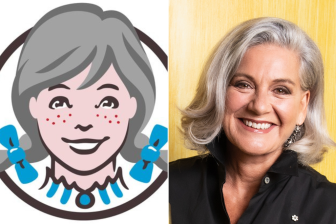Fears mount over wider Libya war as deadly battles erupt across capital – National | Globalnews.ca
Rival factions battled across Libya‘s capital on Saturday in the worst fighting there in two years as a months-long political standoff burst into urban warfare that threatens to escalate into a wider conflict.
A health ministry source said 23 people were killed in Saturday’s fighting including 17 civilians. The ministry earlier said 87 people had been injured.
Sustained fighting in the city over the control of government would likely plunge Libya back into full-blown war after two years of comparative peace that brought an abortive political process aimed at holding national elections.
The standoff for power in Libya has pitted the Tripoli-based Government of National Unity (GNU) under Abdulhamid al-Dbeibah against a rival administration under Fathi Bashagha that is backed by the eastern-based parliament.
Read more:
Protesters storm Libya’s parliament, set fires amid growing political crisis
Forces aligned with Bashagha tried to take territory in Tripoli from several directions on Saturday, but his main military convoy turned back towards Misrata before reaching the capital, eyewitnesses said.
Dbeibah later posted a video online showing him visiting fighters in the city after clashes stopped.
Fighting had erupted overnight and intensified through the morning, with small-arms fire, heavy machine guns and mortars deployed in central areas. Columns of black smoke rose across the Tripoli skyline and shooting and blasts echoed in the air.
By the afternoon, forces aligned with Bashagha appeared to be converging on Tripoli from three directions. In Janzour in northwest Tripoli, a main access point for some pro-Bashagha forces, local people reported intense clashes.
To the south of Tripoli, witnesses in the Abu Salim district said there was heavy shooting after video circulating on social media, which Reuters could not authenticate, appeared to show a powerful pro-Bashagha commander launching an assault there.
Meanwhile, an eyewitness said a main convoy of more than 300 vehicles affiliated with Bashagha had set off towards Tripoli from the northeast along the coastal road. Eyewitnesses said it had returned to its base in Misrata.
Turkey, which has a military presence around Tripoli and helped forces in the city fight off an eastern assault in 2020 with drone strikes, called for an immediate ceasefire and said “we continue to stand by our Libyan brothers.”
“This is horrible. My family and I could not sleep because of the clashes. The sound was too loud and too frightening,” said Abdulmenam Salem, a resident of central Tripoli “We stayed awake in case we had to leave quickly. It’s a terrible feeling.”
Large armed factions backing each side in Libya’s political dispute have repeatedly mobilized around Tripoli in recent weeks, with convoys of military vehicles moving around the city and threatening force to obtain their goals.
Ali, a 23-year-old student who declined to give his surname, said he fled his apartment along with his family during the night after bullets struck their building. “We could not stay any longer and survive,” he added.
Libya has had little peace since the 2011 NATO-backed uprising that ousted Muammar Gaddafi and it split in 2014 between rival eastern and western factions, dragging in regional powers. Libyan oil output, a main prize for the warring groups, has repeatedly been shut off during the years of chaos.
An offensive in 2019 by eastern commander Khalifa Haftar, backed by the eastern-based parliament, collapsed in 2020 leading to a ceasefire and a U.N.-backed peace process.
The truce included setting up Dbeibah’s GNU to govern all of Libya and oversee national elections that were scheduled for last December but were abandoned amid disputes over the vote.
The parliament said Dbeibah’s mandate had expired and it appointed Bashagha to take over. Dbeibah said the parliament had no right to replace him and he would step down only after an election.
Bashagha attempted to enter Tripoli in May, leading to a shootout and his departure from the city.
Since then, however, a series of deals have brought realignments of some armed factions within the main coalitions facing off around Tripoli.
Haftar remains closely allied with the eastern-based parliament and after his 2019-20 offensive some Tripoli groups remain deeply opposed to any coalition in which he plays a role.
A GNU statement said the latest clashes in Tripoli were triggered by fighters aligned with Bashagha firing on a convoy in the capital while other pro-Bashagha units had massed outside the city. It accused Bashagha of backing out of talks to resolve the crisis.
Bashagha’s administration said in a statement that it had never rejected talks and that its own overtures had been rejected by Dbeibah. It did not directly respond to the assertion that it was linked to the clashes.
(Reporting by Ahmed ElumamiAdditional reporting by Ayman al-Warfali, Hani Amara and Jonathan Spicer Writing by Angus McDowallEditing by Pravin Char and Frances Kerry)
For all the latest World News Click Here
For the latest news and updates, follow us on Google News.




